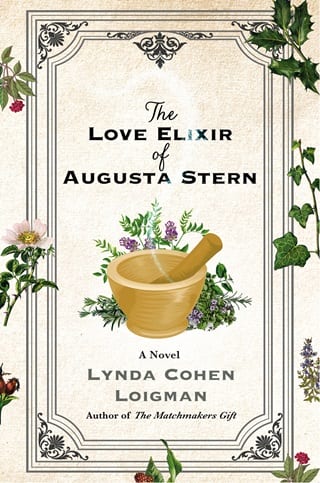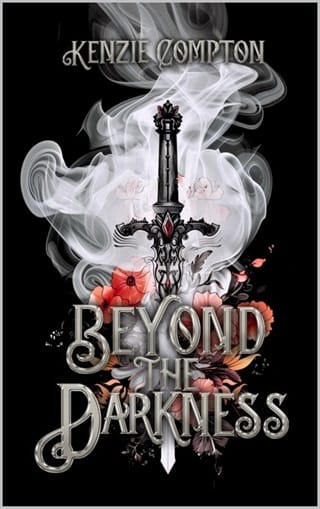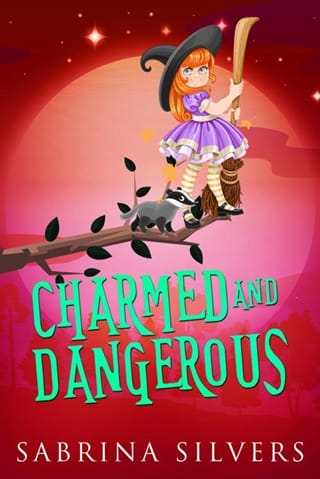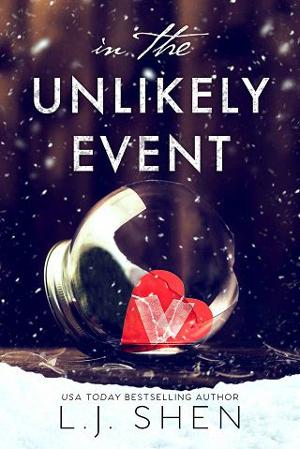Chapter Fifty-One
FIFTY-ONE
OCTOBER 1987
As Irving described Mrs. Diamond’s threats, Augusta reached for Jackie’s hand. Nathaniel’s face turned white as a sheet.
“What a monster!” Shirley said.
“Horrible!” Nathaniel agreed.
Jackie seemed less surprised than the others. And as always, she had questions. “So that explains why you married Lois. But why did the whole family leave for Chicago?”
“When Freddie Schechter’s body was found, they found Mitzi’s handkerchief in the alley. She’d thrown it into one of the garbage cans, but some overeager cop fished it out. She wasn’t worried about going to jail—the Diamonds had too many judges on the payroll for that. But the handkerchief was monogrammed with her initials, and she worried that if they mentioned it in the papers, Lois would figure out who killed her boyfriend. To this day, Lois doesn’t know it was her mother. Plus, Mitzi never liked Brooklyn anyway. She always wanted an excuse to go back to Chicago.”
“My mother told me that after you moved, they left my grandfather alone,” said Jackie. “None of the other racketeers in the neighborhood came within a block of the store.”
“I struck a deal with Mitzi,” Irving said. “In addition to marrying Lois, I promised never to tell her that her mother killed her boyfriend. Mitzi promised to leave Stern’s Pharmacy alone. She told me she would spread the word that Solomon Stern and his family were off-limits.”
While Irving talked, Augusta paced. She walked to the sideboard where the cake had been cut, then to the windows overlooking the courtyard. She lifted the champagne from the ice bucket and took a swig straight from the bottle. “You weren’t in love with Lois,” she murmured, trying to make sense of it all. “You weren’t the father of those babies.” She poured another swig of champagne down her throat before she turned to face him. “So why didn’t you tell me the truth?”
Irving frowned. “I wanted to, but I couldn’t risk it. Mitzi Diamond was a piece of work, but you were no shrinking violet, either. I knew that if you got wind of the truth, I wouldn’t be able to stop you from confronting her. And that was too dangerous to think about. I could make my peace with your hating me. But not with Mitzi hurting you. You have no idea how brutal she could be.”
“And the boys?” said Augusta. “You raised them as your own. Did you ever tell them?”
“Only after they were grown. Honestly, the boys were the easiest part. We had no idea Lois was having twins—there were no sonograms back then. But after they were born, Lois and I were both too busy and too tired to find enough energy to keep hating each other. My life didn’t turn out the way I wanted, but Bill and Michael have always been the best part. I promised to keep working as Zip’s companion, and Mitzi promised to keep the kids out of the family business. Like I told you, Michael became a doctor, and Bill teaches geometry.”
Augusta’s voice grew whisper soft. “But after Lois left you and the boys, why didn’t you try to get in touch with me then?”
He hung his head. “I tried to see you, Goldie. I swear, I tried. I came back to New York for the Victory Parade back in 1946. Both of my boys were drafted in ’45, but they never made it overseas. By that point, the war was almost over. It was their idea to meet in New York and go to the ticker- tape parade together. We spent that day in Washington Square, and then the next day, I took the subway to Brooklyn alone.”
Irving looked up, his eyes finding Augusta’s. “Brownsville was different from what I remembered. The stores were new, the sidewalks were filthy. I didn’t recognize anyone. It didn’t feel like home anymore. Still, I was determined to find you. I figured—what the hell—I’ll try the store. For all I knew, you were still there.”
Augusta’s lips parted in surprise. “In ’46? I was there then.”
“I know,” he said. “I saw both of you through the window.”
“Both of who?”
“You and Jackie. At least, that’s who I know it was now. But then, all I saw was you holding a little girl who had your dimples and your father’s eyes. You were hugging her close to your chest and laughing. I knew—I was convinced—that the girl was yours.”
“I used to go to the store all the time,” said Jackie.
Augusta nodded. “She did.” It dawned on her then—Irving’s comment on the day they first met by the pool. “That’s why you said you heard I had a daughter. You didn’t hear it from anyone. You saw it with your own eyes.”
Irving smiled sadly. “I figured you were a mother and a wife. I didn’t want to blow up your life again. Not after everything that had happened and all the pain I’d already caused.”
“Well, you were wrong, ” Augusta snapped. “Jesus, Irving. You were so, so wrong. We could have had so much more time. Think of all those years we wasted.”
“I know,” he said softly. “That was the first thing I thought of when you showed up here and said that you’d never married. I should have gone into the store that day. I don’t know how to apologize for that.” He took a tentative step toward her. “I wish I could go back and change the past, but we both know I can’t do that, Goldie. All I can do is promise to love you for all the years that we have left.” He reached out his arm and took her hand in his.
“It isn’t too late for us,” he promised.
Augusta could feel her heartbeat slowing. She could feel her breathing even out. This was the man who had always seen her, the one who had always encouraged her career. This was the man who’d said she was at her most beautiful when she was thinking. This was the man who’d saved her father’s reputation from people who’d wanted to burn his store to the ground. The man who had carried her home in the snow, who had saved her book, who had put himself at risk just to save for a ring to make her his wife.
It isn’t too late.
“I have to believe we were meant to find each other,” said Irving. “I mean, of all the places you could have moved to, somehow you chose Rallentando Springs. If that isn’t fate, I don’t know what is.”
“It wasn’t fate, it was Jackie,” Augusta said. “She’s the one who sent me the brochure. If it hadn’t been for her…” Augusta stopped in the middle of her sentence. She glanced at her niece, who looked away. “Jackie?” she said. “Jackie, did you… No. No. It isn’t possible. You couldn’t have known… there’s absolutely no way.”
“Surprise?” Jackie said with a sheepish smile. “Promise me you won’t be angry.”
Shirley clapped her hands together in a show of obvious delight. “Jackie, you are absolutely marvelous !”
“I don’t understand,” said Augusta. “How did you know where Irving lived?”
“I found out through Harold Glantz.”
“Harold Glantz?”
Jackie nodded. “He’s from Brooklyn, too, you know—Flatbush, though, not Brownsville. Anyway, you remember the second night of Passover, when Philip and I took the kids to his cousins? Harold and his wife were there. Harold’s wife is related to Philip’s cousin. Harold said he was from Flatbush, and when I told him that my parents grew up in Brownsville, he said his tennis partner did, too. Irving’s name was in my head from everything Mom had told me, and the idea of two Irving Rivkins seemed like too much of a coincidence. Harold said he lived in Rallentando Springs, so I called and asked for some brochures.”
“What if Irving and I had ended up hating each other?”
Jackie shrugged. “I was willing to risk it.” She turned to Irving and Nathaniel. “Since this seems to be the time for confessing secrets, it’s probably best if I tell you now that I’m the one who spiked Nathaniel’s drink. I meant to spike Irving’s drink, of course, but we all saw how that turned out.” Jackie released another bubble of laughter. “History keeps repeating itself with you two!”
“You spiked my drink?” Irving said. “What did you spike it with, exactly?”
“It’s a long story,” Augusta said.
“So?” said Irving. “I’ve got time.”
 Fullepub
Fullepub 



